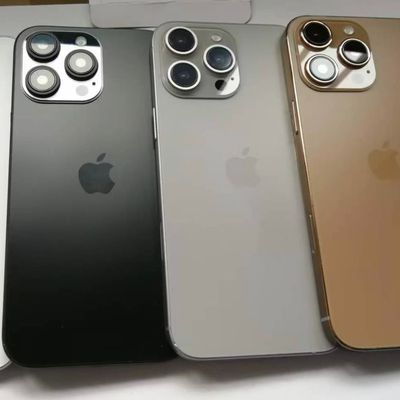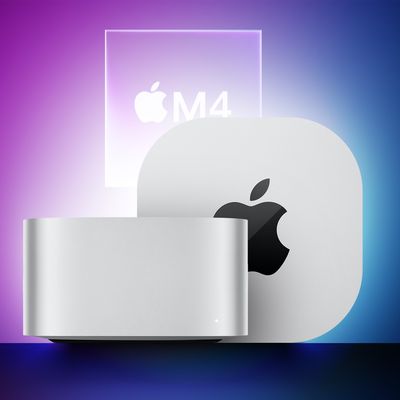1TB iPhone 16 Pro Models Could Face Performance Setback
iPhone 16 Pro models configured with 1TB of storage could feature slower read and write speeds to reduce costs, DigiTimes reports.

The change is part of Apple's potential switch to higher-density Quad-Level Cell (QLC) NAND flash memory for its 1TB iPhone models, which the company is said to currently be "actively evaluating." Apple currently uses costlier Triple-Level Cell (TLC) NAND.
Using QLC NAND would allow Apple to cram more storage into a smaller space and comes at a lower price, but with the disadvantage of slower read and write speeds. QLC NAND can also be less durable and reliable than TLC NAND, handling constant write operations less effectively. Apple could, of course, seek to mitigate these issues with specific optimizations.
The report adds that adopting QLC NAND could make offering iPhones with up to 2TB of storage viable for the first time. A 1TB iPhone 15 Pro Max is priced at $1,599, $200 more than the 512GB model, so a future 2TB model would need to be cost-effective, as well as contain flash storage that is sufficiently compact inside the device.
New iPhone models with 128GB, 256GB, and 512GB of storage are highly likely to stick with TLC NAND for the foreseeable future. Although TLC NAND is still widespread in the industry, QLC NAND is expected to account for about 20% of all NAND shipments from the second half of 2023 to the first half of 2024, suggesting that its usage is growing despite its drawbacks.
Popular Stories
Leaker Sonny Dickson is back today with a new dummy unit image showing all four iPhone 16 Pro color variants, including the rose gold or "bronze" unit that replaces Blue Titanium in the existing iPhone 15 Pro models. The iPhone 16 Pro models are expected to come in black, white or silver, gray or "Natural Titanium," and a rose or rose gold color replacing Blue Titanium, according to Apple...
Multiple rumors have suggested that the iPhone 16 models are going to have an all-new button that's designed to make it easier to capture photos when the devices are held in landscape mode. Apple calls the button the Capture Button internally, and it is going to be one of the most advanced buttons that's been introduced to date with support for multiple gestures and the ability to respond to ...
Apple typically releases its new iPhone series in the fall, and a possible September 10 announcement date has been floated this year, which means we are just one month away from the launch of the iPhone 16. Like the iPhone 15 series, this year's lineup is expected to stick with four models – iPhone 16, iPhone 16 Plus, iPhone 16 Pro, and iPhone 16 Pro Max – although there are plenty of design...
Apple's iPhone 16 series is expected to debut in September 2024. This release follows Apple's trend of introducing new iPhone models annually in the fall. While the exact date has yet to be officially confirmed, the day of Tuesday, September 10 has been rumored as a possible announcement date, and September has traditionally been the month when Apple unveils its latest smartphone innovations. ...
Apple is moving forward with its project to develop a tabletop robotic device, according to Bloomberg's Mark Gurman. Subscribe to the MacRumors YouTube channel for more videos. The device would feature a large iPad-like display mounted on a "thin robotic arm" that would allow the display to tilt and up and down and rotate a full 360º, and it would serve as a "smart home command center," a...
It's almost September, but Apple still has multiple new product launches planned for 2024. New iPhone 16 models and Apple Watches are coming in September, and we're also going to get at least three Mac updates with M4 chips this year, according to rumors. Here's what's on the horizon. MacBook Pro Apple plans to refresh both the 14-inch and 16-inch MacBook Pro models, adding M4 chips. The ...
T-Mobile was fined $60 million by the Committee on Foreign Investment in the US (CFIUS) for negligence surrounding data breaches, reports Reuters. CFIUS penalized T-Mobile for failing to prevent or disclose unauthorized access to sensitive customer data. When T-Mobile merged with Sprint, it signed a national security agreement with CFIUS, which is what led to the fine earlier this year....





















